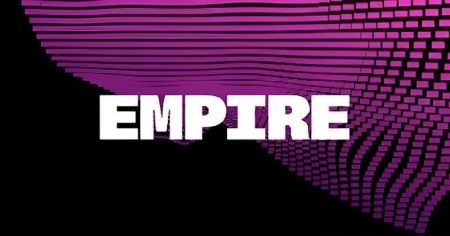Historic SEC-CFTC Roundtable Set to Transform U.S. Financial Regulation Landscape
Regulatory Giants Join Forces to Harmonize Oversight and Boost Market Competitiveness
In a watershed moment for U.S. financial markets, the Securities and Exchange Commission (SEC) and Commodity Futures Trading Commission (CFTC) have announced plans for an unprecedented joint roundtable aimed at aligning their regulatory frameworks. The September 29, 2025 event, scheduled for 1 p.m. to 5 p.m. at SEC headquarters in Washington D.C., represents a pivotal shift in how America’s two primary market regulators approach their overlapping jurisdictions. This high-profile gathering—accessible to the public both in-person and via live webcast—signals a significant evolution in regulatory philosophy that could reshape the competitive landscape of U.S. financial markets for decades to come.
The initiative comes amid growing concerns that regulatory fragmentation has hampered innovation and created unnecessary compliance burdens for market participants. SEC Chairman Paul S. Atkins and CFTC Acting Chairman Caroline D. Pham described the upcoming roundtable as “an opportunity to discuss regulatory harmonization priorities” in their joint announcement. This understated characterization belies the potential magnitude of what market observers are already calling a transformative development in financial regulation. The coordination effort follows years of industry complaints about contradictory rules, duplicative reporting requirements, and jurisdictional ambiguities that have increased costs and complexity for firms operating across both securities and derivatives markets.
Cryptocurrency Regulation Serves as Initial Testing Ground for New Collaborative Approach
The regulators specifically highlighted their recent joint staff statement on spot cryptocurrency asset products as merely “a first step” in a much broader harmonization agenda. This reference is particularly noteworthy as cryptocurrency regulation has emerged as one of the most visible areas of regulatory overlap and sometimes conflicting approaches between the two agencies. Industry stakeholders have long criticized the lack of regulatory clarity in digital asset markets, with some firms receiving contradictory guidance from the SEC and CFTC. The agencies’ willingness to prioritize this sector suggests they recognize the urgent need for coherent oversight in rapidly evolving markets where innovation often outpaces regulatory frameworks.
In their announcement, Atkins and Pham outlined an ambitious scope for potential harmonization efforts that extends far beyond cryptocurrency. They identified several priority areas for alignment: “harmonizing product and venue definitions; streamlining reporting and data standards; aligning capital and margin frameworks; and standing up coordinated innovation exemptions using each agency’s existing exemptive authority.” This comprehensive approach acknowledges the deep structural challenges created by having two separate federal regulators overseeing interconnected markets. Particularly significant is the mention of “coordinated innovation exemptions,” which suggests both agencies recognize the need to create regulatory sandboxes or similar frameworks that allow for controlled experimentation with new financial products and technologies.
Market Efficiency and Global Competitiveness Drive Strategic Regulatory Realignment
The regulators framed their collaboration not merely as an administrative improvement but as a strategic imperative for U.S. market competitiveness. “This roundtable represents a pivotal step toward building more coherent and competitive U.S. markets,” they stated, underscoring that regulatory efficiency directly impacts America’s position in global finance. Their emphasis on competitiveness reflects growing concerns that regulatory complexity has become a comparative disadvantage for U.S. markets, potentially driving innovation and capital formation to jurisdictions with more streamlined oversight frameworks. Financial centers in Asia and Europe have increasingly positioned themselves as alternatives to U.S. markets, often highlighting their unified regulatory structures as advantages for businesses seeking regulatory certainty.
The timing of this initiative coincides with accelerating global competition for financial innovation leadership, particularly in emerging sectors like digital assets, decentralized finance, and AI-driven financial services. “By working together to align our regulatory frameworks, the SEC and CFTC can reduce unnecessary barriers, enhance market efficiency, and create space for innovation to thrive,” the regulators explained. This language reflects a significant shift in regulatory perspective—acknowledging that excessive or uncoordinated regulation can impede beneficial innovation rather than simply protect markets. The statement that “Our shared goal is to ensure that America remains the global leader in capital markets” demonstrates that both agencies now view their regulatory mandates through the lens of national economic competitiveness, not just investor protection.
Decades of Regulatory Division Create Substantial Challenges for Harmonization Efforts
While the announcement marks a promising development, harmonizing two distinct regulatory regimes built over decades presents formidable challenges. The SEC and CFTC operate under different statutory authorities—the Securities Exchange Act of 1934 and Commodity Exchange Act, respectively—with distinct legal frameworks, enforcement procedures, and regulatory philosophies. Meaningful coordination will require navigating these foundational differences while respecting each agency’s core mission and legal constraints. Previous attempts at closer coordination have often faltered due to these structural barriers, jurisdictional tensions, and different regulatory cultures. The roundtable participants will need to address these historical obstacles candidly if this initiative is to succeed where others have not.
Industry experts note that substantial harmonization may ultimately require congressional action to revise the underlying statutory frameworks. Market participants affected by both regulatory regimes will be watching closely to see whether the agencies propose administrative solutions within their existing authorities or identify areas where legislative changes might be necessary. The roundtable format itself—bringing together staff and leadership from both agencies in a public forum—suggests a commitment to transparency and stakeholder engagement that could build momentum for more fundamental reforms. As the financial services landscape continues to evolve with technological innovation blurring traditional product categories, the pressure for regulatory modernization will only increase.
Financial Industry Stakeholders Anticipate Transformative Impact on Compliance and Innovation
The announcement has already generated significant anticipation among financial industry stakeholders who have long advocated for more coordinated regulation. Market participants across securities, derivatives, and digital asset sectors stand to benefit substantially from reduced compliance complexity and more consistent regulatory expectations. For financial technology innovators in particular, a more harmonized approach could dramatically reduce time-to-market for new products that currently require navigating separate approval processes at both agencies. The potential for “coordinated innovation exemptions” mentioned by the regulators could create significant new opportunities for controlled experimentation with novel financial products and services.
As September 29, 2025 approaches, industry associations, compliance professionals, and market infrastructure providers will be formulating recommendations and preparing input for what could be the most consequential regulatory coordination initiative in decades. The public nature of the roundtable ensures that stakeholders from across the financial ecosystem will have visibility into the agencies’ thinking and an opportunity to shape the resulting frameworks. If successful, this initiative could fundamentally transform how financial regulation works in the United States, creating a more coherent system that protects investors while enabling innovation and preserving America’s competitive edge in global markets. The regulators’ commitment that the roundtable represents not just a discussion forum but “a key milestone in shaping the future of regulatory cooperation” suggests they envision this as the beginning of a sustained, transformative effort to modernize financial oversight for the 21st century.













